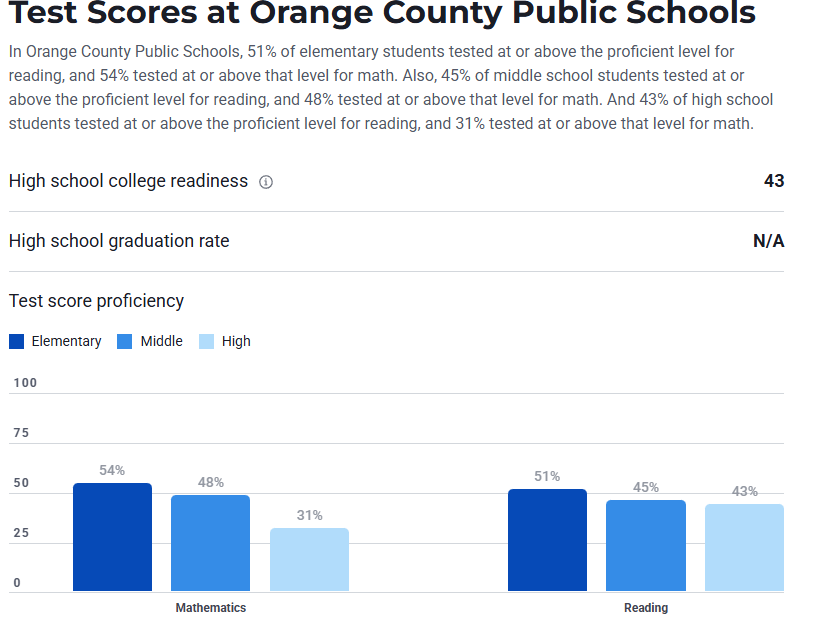Shaunte Jemison has a simple philosophy for children when it comes to books: “If you want a book, we want you to read.”
By any measure, her mission over the last five years has been successful, as her nonprofit, Re-Imagine Communities, annually distributes between 1,500 and 2,000 fiction and non-fiction books, including graphic novels, cookbooks and poetry — whether purchased or donated — at numerous events, particularly to at-risk youth in underserved communities. Books, she said, are a way to encourage all children to learn, create and view possible futures for themselves.
However, at the end of the school year, the Apopka-based organization found itself short of books as it distributed more than usual at an increasing number of events over the past year. So, it partnered with the West Orange Chamber of Commerce (where it's a member) on its first-ever book drive, which began on June 1. To date, the nonprofit has collected more than 4,300 books for children, surpassing its goal by four times, Jemison, the nonprofit’s CEO and co-founder, said in a recent phone interview. The book drive ends July 31. Email info@re-imaginecommunities.org or call 407-228-3647 for book drop-off information.
“The community really rallied around it,” Jemison said, adding that police departments, businesses, banks, coffee shops, churches and individuals all pitched in. “It became this community book drive.” And there’s a tactile joy in physical books. “We want you to feel a book. We want you to get off your electronic device and actually read a book,” she said.

All books are welcome at Re-Imagine Communities. The organization is not bound by Florida’s law, which allows parents to challenge and remove books from school libraries. Jemison said Re-Imagine Communities isn’t part of the school system and does not supply books to Orange County Public Schools (OCPS) although it does partner with it on book events.
Last year, the state Department of Education reported that Florida schools removed 732 titles during the 2023-2024 school year, nearly double the number of books removed in the prior year, following challenges by parents and community members, some of whom don't have children in the schools systems. Last month, according to the Orlando Sentinel, OCPS removed another 13 books that the state education board deemed “pornographic,” based on a list by the rightwing group Citizens Defending Freedom that was sent to Hillsborough County Public Schools. The Sentinel reported Monday that the majority of the books on the list were “rarely if ever checked out” during the past school year.
Jemison said if her organization obtains books on that restricted list and a parent wants them for their child, “we don’t stop them from taking whatever books that they like.”
Jemison and her husband launched Re-Imagine Communities during the COVID-19 pandemic. As a youth leader of their church, she heard from families who were uncertain about whether to keep their children home or send them to school and needed help. Jemison, who has more than 15 years of experience working at nonprofits, said she decided she could access resources and make a direct impact on her community. She said the organization reached more than 6,000 students in 30 schools across the county last year and served more than 4,000 families.
The couple initially started the organization with their own money without taking salaries, Jemison said, holding events in Apopka and at schools there. The organization now works with every school in OCPS District 7, including in Ocoee and Winter Garden. It hosts various events, like the upcoming “Burgers, Books, and Badges” on Aug. 7, in collaboration with the Ocoee Police Department at the McDonald’s, located at 11131 West Colonial Drive, to promote literacy among youth.
The organization also hosts “Read Around the City,” monthly live reading sessions with elementary school students at various locations in the county and online. Attendees have to register for the free events, which are advertised in the nonprofit’s social media pages, including Facebook, Instagram and X.
While the nonprofit has funders that care about the organization’s progress, Jemison said success means parents telling her that their child once hated reading and now wants a library card.
Literacy, she said, exposes children to potential career paths that they likely wouldn’t experience otherwise, since access to libraries is limited or non-existent in underserved communities. Not only does reading benefit children, but their families also become involved in their children’s aspirations, said Jemison.
Even parents and grandparents sometimes come alone to events, requesting books for their children and grandchildren.
The nonprofit seeks to provide at-risk children with the tools to break generational poverty cycles, reduce crime and excel in the workforce, said Jemison. “All of these things come back to literacy,” she said, adding that low literacy rates have a strong correlation to incarceration and homelessness.
A 2012 report by the Annie E. Casey Foundation, a charitable foundation that has sought to improve children’s well-being in the U.S. for nearly 80 years, found children are four times more likely to drop out of school if they can’t read proficiently by the end of third grade. A third-grade reading proficiency also enhances a person’s earning potential over their lifetime.
“Illiteracy places individuals at greater risk of justice system involvement, poverty, public assistance, poor health decisions and more, according to the foundation. “Among developed nations, the United States has the highest economic cost of illiteracy at $300.8 billion, according to a 2023 report from the World Literacy Foundation.”
Jemison said improving literacy among Florida’s children is also a particular focus for the Florida Chamber of Commerce and Foundation. About a month ago, President and CEO Mark Wilson said that the state’s third-grade reading scores ticked up by 2 percentage points — to 57 percent — as a result of hard work by students, educators, and the business community.

“While we celebrate the positive momentum seen in 50 of our 67 school districts, we turn our attention to the nearly 95,000 Florida students who are not yet reading at grade level,” he said in a statement.
In Orange County, 51 percent of OCPS elementary school students tested at or above the proficient level in reading, while the corresponding rates were 45 percent for middle school students and 43 percent for high school students, according to Jemison.